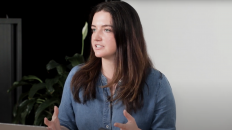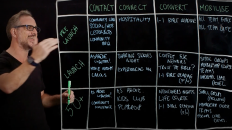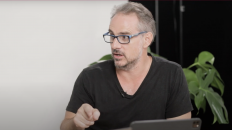Greetings, one and all.
Thanks for joining us. At the risk of stating the painfully obvious, Austalia is a multi-cultural place. Now we've established that, let's move on to the tougher aspect of understanding the most beneficial ways of ministering the gospel to migrant communities. Yes, that's a worthwhile but daunting task. To assist church-planters with getting their heads around how to approach migrant communities, Sydney Pastor Peter Ko recently joined Scott Sanders for our latest, monthly Planter Session.
Click here to listen to their full conversation about 'Understanding The Migrant Mindset.' Peter's extensive experience with migrants in metropolitan Sydney, provided plenty of insights and suggestions about how to reach out effectively. By way of tantalising example, see below for Peter's summary of 'Five Phases of a Migrant Community'. Based upon research by Islamic scholar Mehmet Özalp (contained in his book Islam Between Tradition and Modernity: An Australian Perspective), these five phases do not only relate to Muslims in Australia. As Peter outlines below, the progression of migrants becoming more established in an adopted nation, crosses ethnic and religious boundaries. Understanding such phases of development, can help Christians better appreciate and relate to the specific needs and perspectives of a migrant community.
Five Phases of a Migrant Community
1. Survival
The first phase involves migrants arriving in another country and how their community 'needs to work out how to get by, day by day.' Peter believes the Australian government's multi-cultural policies in the 1970s and 1980s did not provide enough 'cultural support for migrants'. For example, language services were lacking. 'That's why they end up going to one suburb, because there are people there who, at least, can help them survive.' From this point, migrants may not proceed to the following phases, due to returning to their homeland.
2. Settlement
Remaining upon foreign soil seems to be the better option, than returning home. Migrants often are influenced by the 'quality of life' in adopted countries such as Australia. Migrants in Australia can believe their next generation will benefit from remaining here, so will 'make sacrifices' in order to officially 'call Australia home'. However, as Peter reminds, it's not that easy to swap homes. 'But it's difficult. They don't feel a part of Australia, but they feel that this is the better option.' 'All the sacrifices they make
3. Creating Identity
According to Peter, the third phase involves building positive relationships with the surrounding community. 'That's particularly going to happen with their children… some of whom were born in Australia,' says Peter. This creation of a new identity is particularly seen among the generations born after initial migrants have settled. Viewing themselves as 'not like Mum and Dad' or totally like their 'Anglo friends', the descendants of migrants want to fit in to, and succeed within, the society they are part of. They know they 'have a place in Australian society', and seek to establish it via such identity-shaping exercises as positive relationships.
4. Independent Identity
A particular migrant community 'galvanises itself', during the fourth phase. This 'independent identity' phase forges recognition of a new group of citizens, within the adopted land. For example, Peter points to 'there is such a thing as “Australian Chinese” or “Australian muslims”.' These groups begin to 'have a voice', be it through local government representatives or assocations. Further, members of these groups display distinct traits and attributes which are specific to the 'independent identity' that has been forged.
5. Internationalisation
Peter believes 'the fifth phase is something a lot of communities haven't reached yet'. This phase of 'international interdependence', sees an established migrant community being so galvanised and successful that it can be of great benefit to 'home country'.



